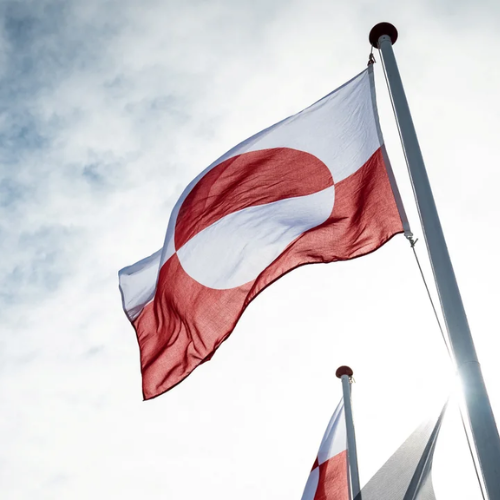Greenland is taking steps to protect its elections from outside influence by introducing a new law that bans foreign donations to political parties. The government announced this move on Monday, highlighting concerns about interference from powerful nations with strategic interests in the Arctic territory. The bill is expected to pass easily, as the ruling government holds a majority in Greenland’s parliament. Once passed, the law could come into effect immediately.
The new law states that political parties in Greenland cannot accept money from foreign sources or anonymous donors. This includes all sections of political groups, including local branches and youth wings. The bill defines a foreign donor as anyone who does not live or have an official address in Greenland. Additionally, the law sets a financial cap on private donations, ensuring that no single donor can exert too much influence. Political parties will not be allowed to receive more than 200,000 Danish krone (about £22,000) in total contributions or more than 20,000 Danish krone (around £2,200) from any one individual.
Concerns Over Outside Interference
The move to block foreign funding comes as Greenland prepares for a national election before April 6. There have been growing fears that global superpowers may try to influence the election results to gain control over Greenland’s strategic resources and position in the Arctic region. Recent international attention has put Greenland in the spotlight, with foreign leaders expressing interest in the territory’s future.
Trump’s Tough Economic Stance on Allies and Rivals Sparks Tensions
Despite repeated statements from Greenland and Denmark that the island is not for sale, outside forces have continued to show interest in acquiring control. This has led many Greenlandic politicians to push for measures that safeguard the integrity of their political process. The new law is being seen as a way to prevent hidden financial support from foreign sources that could sway election results or pressure political parties into making decisions that do not align with the interests of the Greenlandic people.
A member of Denmark’s parliament representing Greenland has pointed out that election interference is a global issue, and Greenland is no exception. Governments worldwide have raised concerns about foreign influence in elections, and Greenland’s leadership believes taking preemptive action is necessary to ensure that political decisions remain independent and free from outside control.
Greenland’s Political Future
While Greenland is still an autonomous territory of Denmark, there has been growing discussion about its future, with some advocating for complete independence. Denmark currently manages Greenland’s defense and foreign policy, but local leaders have been pushing for more control over their own affairs. Greenland has made it clear that while it is not for sale, it remains open to business opportunities with international partners. However, its leadership wants to ensure that such relationships do not come at the cost of political integrity.
Honduras Bold Rivalry: $18 Billion Dry Canal Threatens Panama’s Dominance
Copenhagen has repeatedly emphasized that Greenland’s future should be decided by its own people, but there is concern that foreign interests may try to influence that decision. In response, Denmark’s prime minister has been actively engaging with European leaders to build diplomatic support for Greenland’s sovereignty.
The upcoming election will be a critical moment for Greenland as it navigates its political path. With new rules in place, Greenland hopes to protect its democratic process from any potential outside manipulation. The introduction of the bill highlights the importance of maintaining national independence in decision-making, especially in a time when international attention on the Arctic is increasing.
As the world watches Greenland’s next steps, the government’s commitment to keeping its elections free from foreign interference stands as a strong message that its future will be determined by its own people, not outside forces.


